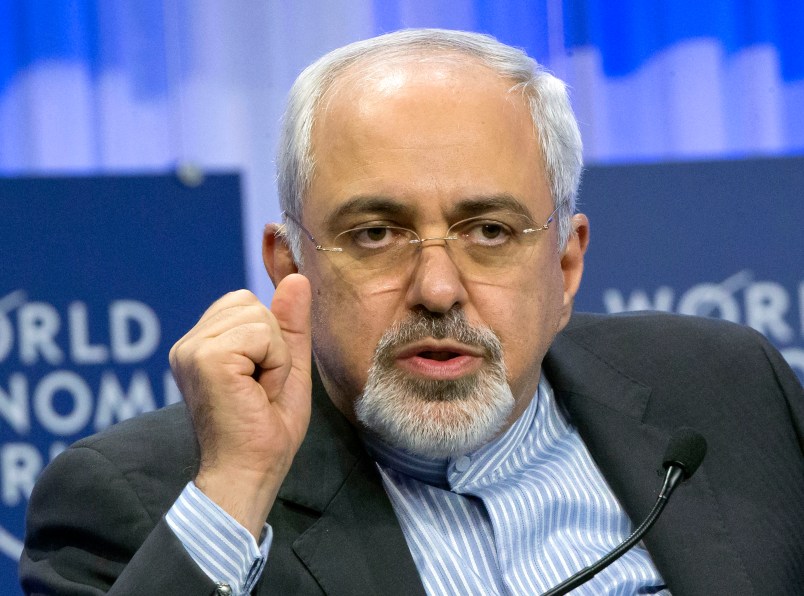TEHRAN, Iran (AP) — Iran’s foreign minister said Wednesday that Washington’s “wishes are unlikely to come true” in talks between the Islamic Republic and world powers over its nuclear program, the government’s latest apparent attempt to deflect criticism from hard-line skeptics who say that President Hassan Rouhani will give up too much for too little in upcoming negotiations over a final comprehensive deal.
Mohammad Javad Zarif indicated the U.S. wanted Iran to give up major parts of its nuclear program but said such demands won’t be carried out.
“America has wishes and those wishes are unlikely to come true and that’s why they are negotiating with the Islamic Republic of Iran to achieve a solution based on realities,” he told a news conference in Tehran.
Iran on Jan. 20 stopped enriching uranium to 20 percent and started neutralizing its existing stockpile of that grade — just steps away from weapons material — in order to fulfil commitments reached under an interim deal in Geneva on Nov. 24. The U.S. and the European Union also lifted some sanctions in response to the Iranian moves.
The interim Geneva accord will last for six months as Iran and the six-nation group — the five permanent members of the U.N. Security Council plus Germany — negotiate a final deal. Those talks are to start Feb. 18 in Vienna.
Under the six-month deal, Iran agreed to halt its 20 percent enrichment program, but will continue enrichment up to 5 percent. It also will convert half of its stockpile of 20 percent enriched uranium to oxide, and dilute the remaining half to 5 percent.
In return, the U.S. and the EU simultaneously announced the lifting of sanctions on petrochemical products, insurance, gold and other precious metals, auto industry, passenger plane parts and services. They also plan to release $4.2 billion Iranian assets of oil revenues blocked overseas, in eight installments over a period of six months. The first installment of $550 million was provided to Iran on Feb. 1, according to Iranian officials.
U.S. officials have repeatedly said they will seek to “dismantle” major parts of Iran’s nuclear program.
U.S. President Barack Obama said in Dec. that “If we could create an option in which Iran eliminated every single nut and bolt of their nuclear program … I would take it.”
Rouhani and Zarif face a challenge in selling the accord to skeptics who say Iran has made too many concessions in return for too little. Hard-liners have called the deal a “poisoned chalice.”
But Iran’s Supreme Leader Ayatollah Ali Khamenei, who has the final say on all state matters, has so far backed Rouhani’s policy of engagement with the outside world, including the nuclear deal.
Copyright 2014 The Associated Press. All rights reserved. This material may not be published, broadcast, rewritten or redistributed.






